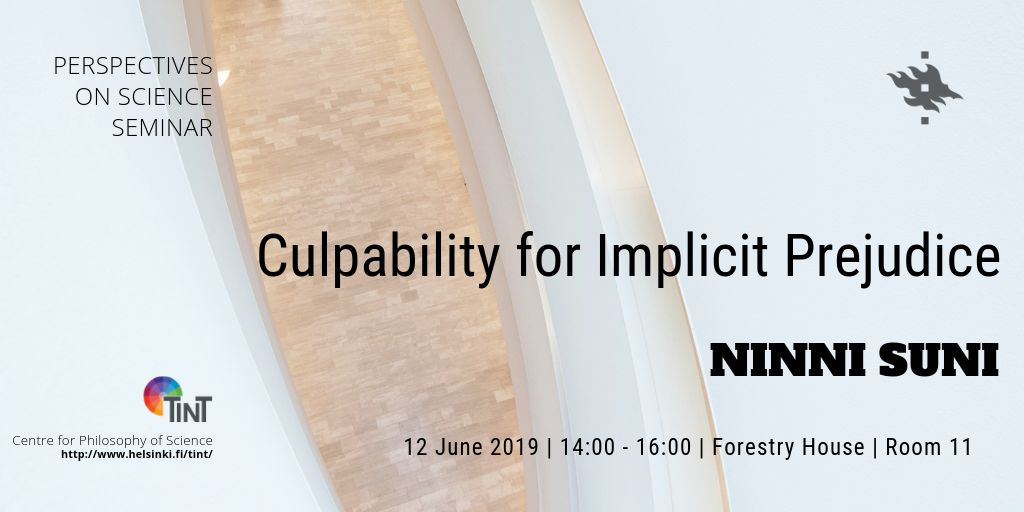At the next Perspectives on Science seminar (Wednesday 12.6.), Ninni Suni (University of Helsinki) will present her paper entitled “Culpability for Implicit Prejudice”. This is a joint session with the Moral and Political Philosophy Seminar.
Moral and Political Philosophy Research Seminar (http://blogs.helsinki.fi/mpp-seminar) is affiliated with the Practical Philosophy discipline at the University of Helsinki. The seminar is a place where faculty members, postgraduate students and visiting speakers meet biweekly to discuss their ongoing work.
Perspectives on Science is a weekly research seminar which brings together experts from science studies and philosophy of science. It is organized by TINT, the Centre for Philosophy of Social Science at the University of Helsinki.
The seminar will take place in room 11, at the Forestry House (Unioninkatu 40), from 14-16.
Paper abstract:
This paper argues against the view that when a harmful bias, such as prejudice, is the result of widespread cultural ignorance, agents are not culpable for the resulting injustice. Assuming that some form of attributionism about moral responsibility is true, we can hold agents accountable for the harm that their biases or attitudes cause.
Implicit biases present a problem for traditional control-based accounts of moral responsibility, because they undermine two central conditions for responsibility: awareness and control. Assuming this view, one way to argue for culpability is to interpret implicit bias as a form of culpable ignorance. This line of argument traces culpability to the amount of socially available information, and because of this, it denies culpability when prejudice is widespread. However, these views tend to confuse backward- and forward-looking senses of responsibility, managing only to secure the latter. Moreover, control-based accounts of culpable ignorance itself have come under attack by skeptical arguments.
This paper argues that adopting an attributionist account of moral responsibility vindicates backward-looking responsibility even in cases of widespread prejudice. According to this view, an agent is culpable when the action or attitude reflects her personality. On this view, prejudice is a form of epistemic mistake that is attributable to the agent, either because it’s due to a distorting personal motivation, or because it reflects the agent’s stable epistemic practices. Even if this is right, though, it’s still possible to allow that we blame agents differently depending on the root and nature of their failures.
Ninni Suni is a doctoral student of practical philosophy at the University of Helsinki.

